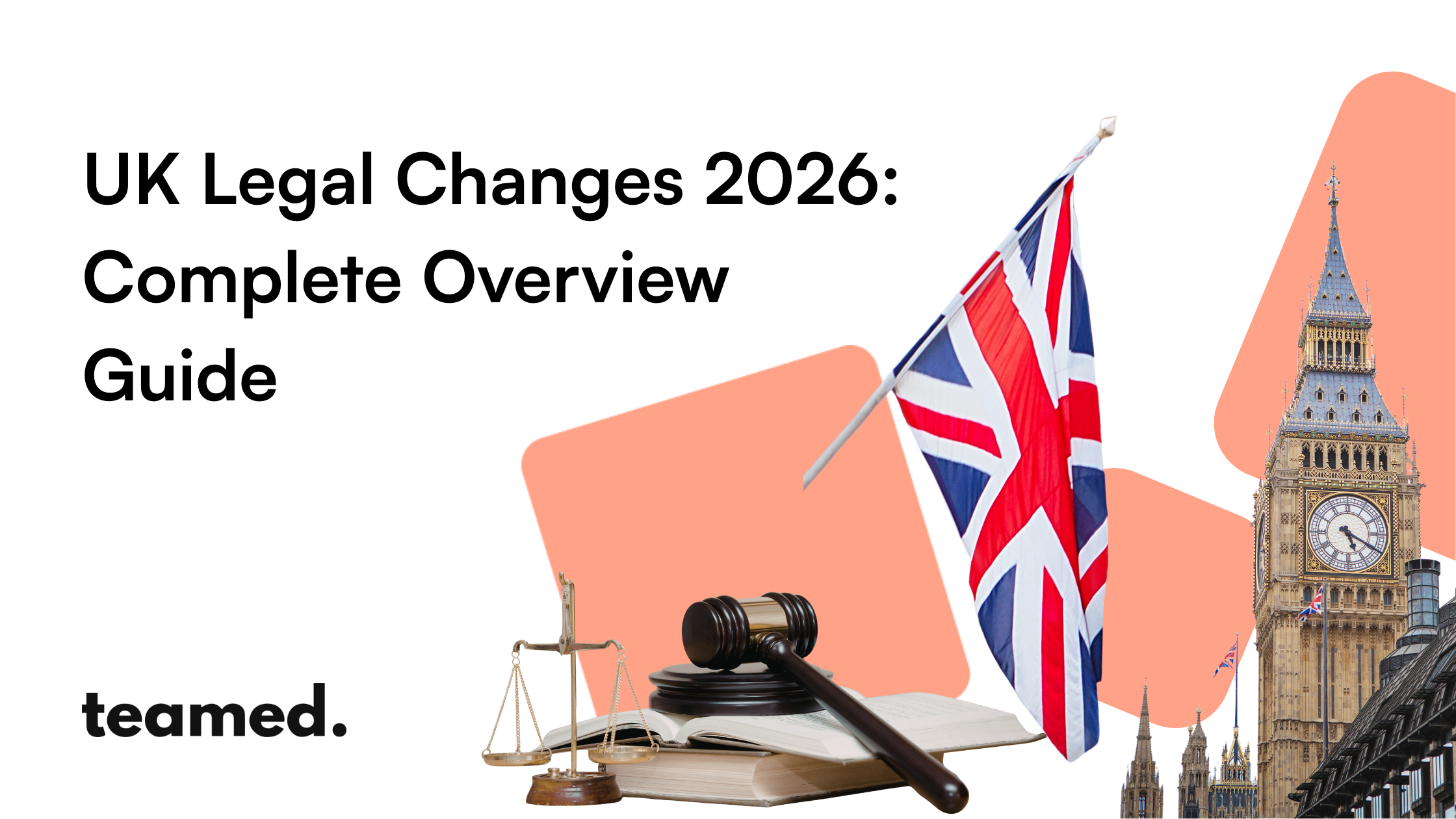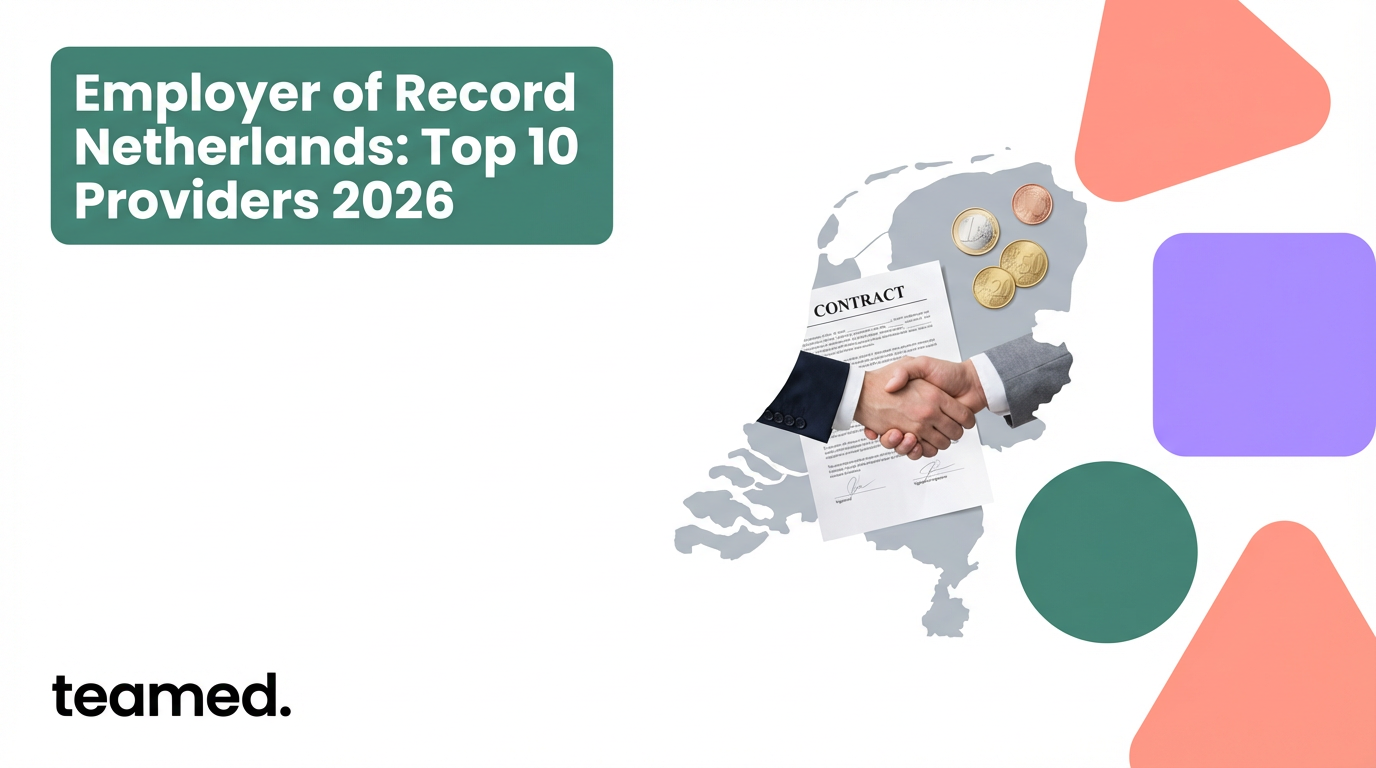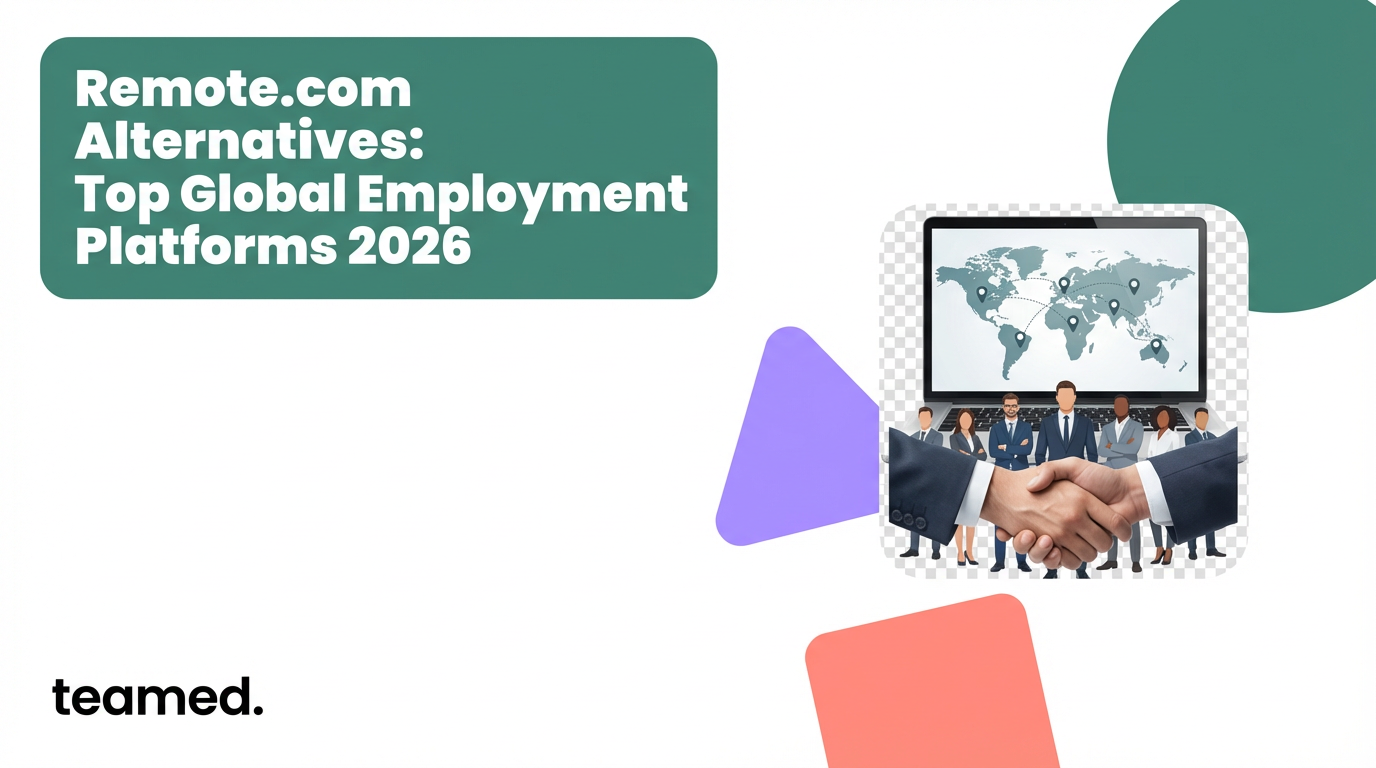Blockchain technology is evolving at an unprecedented pace. Although initially associated with cryptocurrencies, blockchain has proven invaluable in diverse sectors such as supply chain management, data security, and financial services.
As industries continue to recognise the potential of blockchain, the demand for skilled blockchain developers has surged. According to a LinkedIn report, worldwide job postings in the blockchain field grew by approximately 300% in 2021.
This guide will delve deeper into blockchain technology and provide insights on how to hire blockchain developers effectively.
Understanding the Role and Experience of a Blockchain Developer
As you navigate the landscape, understanding blockchain developers' role is essential. Let's dissect their responsibilities, skills, and the criteria for evaluating their expertise.
Defining the Responsibilities
Blockchain developers are the architects of the Web3 world, building the infrastructure layer that lays down the foundation of Web3.
Their primary responsibilities include:
- Developing and Optimising Blockchain Protocols: Ensuring the blockchain network operates seamlessly and securely and optimising it for performance and scalability. They also need to be vigilant about potential security threats and continuously work on improving the network's resilience.
- Designing the Architecture of Blockchain Systems: Creating the structural blueprint of blockchain systems to ensure they are robust and meet specific business needs. This includes making decisions on consensus mechanisms and configuring the blockchain parameters.
- Developing Smart Contracts and Web Apps: Building automated contracts and self-executing applications with specific instructions coded onto them. They should also be able to audit smart contracts to prevent vulnerabilities.
Understanding the Skills Required
Blockchain Developers require specific, Web3-native skills to ensure their building is robust and scalable. A proficient blockchain developer has to be well-versed in the following:
- Blockchain Frameworks: Such as Ethereum, Hyperledger, and others, and can adapt to new ones. They should also know the pros and cons of different frameworks and make informed decisions based on the project's requirements.
- Innovative Contract Development: Using languages like Solidity can develop secure and efficient smart contracts. They should also be able to conduct thorough, smart contract audits.
- Live Environment Implementation: Experience implementing blockchain solutions in a live environment. They should be able to handle the pressures and challenges of deploying blockchain solutions in real-world scenarios.
Familiarity with Security Practices
The USP of Blockchain technology is its security and privacy. A blockchain developer must ensure proficiency with industry-standard practices:
- Cryptographic Protocols: Understand and handle the protocols securely, as well as know the latest cryptographic algorithms and how to implement them in blockchain solutions.
- Data Protection: Understand how to protect data in a blockchain environment. This includes understanding data privacy laws and regulations.
- Security Threats: Know how to safeguard against various threats. They should be proactive in staying ahead of potential security vulnerabilities and threats.
Differentiating Between Blockchain Developers and General Software Developers
While software developers are jacks of all trades, blockchain developers are the masters of one. The distinction lies in the following:
- Specialised Knowledge: Blockchain developers possess specialised knowledge in cryptographic principles and decentralised applications, which is not a prerequisite for general software developers.
- Focus on Decentralisation: They are adept at building decentralised applications (dApps) that operate on a blockchain network, unlike traditional apps.
- Peer-to-Peer Networks: Blockchain developers often work with peer-to-peer networks, which is uncommon among general software developers.
- Tokenomics: Understanding the economic models behind tokens and cryptocurrencies is a unique skill set that blockchain developers possess.
Evaluating Previous Blockchain Projects and Contributions
Before bringing a blockchain developer into your team, it is essential to evaluate their expertise:
- Review Portfolio: Scrutinise the portfolio for diversity in blockchain projects. Look for projects that have had a real-world impact and have been successfully deployed.
- Assess Contributions: Evaluate their contributions to open-source blockchain projects and the blockchain community. Check if they have been actively participating in discussions and forums.
- Innovation and Problem-Solving Skills: Look for innovative solutions they have developed and their approach to solving problems. Assess their ability to think outside the box and bring fresh perspectives.
Hiring a blockchain developer is not a task to be taken lightly. It requires a keen eye for detail and an understanding of the nature of blockchain technology.
Assessing Your Blockchain Development Needs
As we transition from understanding the role of blockchain developers, it's time to focus on how to hire a blockchain developer according to your project needs effectively.
Identifying Project Requirements and Goals
You must clearly understand your project before you set out to hire blockchain developers.
This involves asking the right questions related to:
- Understanding the Problem: What specific problem is your project aiming to solve using blockchain technology? Consider the pain points that blockchain can address and how it can add value to your business or industry.
- Picking a Chain: Having identified the problem, the next step is choosing the appropriate blockchain layer for your solution - a Layer 1 (L1) or Layer 2 (L2) chain. L1 chains are the main blockchain network, while L2 chains are a secondary network built on top of another L1 for better scalability and efficiency.
- Defining Objectives: What are your blockchain project's short-term and long-term objectives? Set measurable goals and KPIs to track the success of your project.
- Identifying Necessary Skills: What specific skills and expertise are required for your project? Consider technical and soft skills such as communication, teamwork, and problem-solving.
Defining the Scope and Timeline of the Project
A well-defined scope and timeline serve as the roadmap for your project, helping you achieve your goals effortlessly.
- Scope Definition: Clearly outline what is and is not included in the project. This will help in setting expectations and avoiding scope creep.
- Milestones: Set critical milestones that will help track the project's progress. This is crucial for keeping the project on track and ensuring timely delivery.
- Timeline: Establish a realistic timeline for the completion of each phase of the project. Consider potential roadblocks and build buffer time into the schedule.
Consideration for remote hiring
In the age of globalisation, remote hiring is not just a viable option but a strategic advantage. Here are some of the benefits that make remote hiring an attractive choice:
- Access to Global Talent: Remote hiring opens the doors to a global talent pool. This is particularly advantageous for blockchain development, which requires specialised skills. You are not limited by geography and can find the best minds regardless of their location.
- Cost-Effectiveness: Remote hiring can significantly reduce overhead costs. There's no need for physical office space; remote workers often have their equipment. This can translate into savings that can be reinvested into the business.
- Increased Productivity: Many studies have shown that remote workers are more productive. The flexibility and comfort of working from home can lead to higher concentration and efficiency.
- Employee Retention and Satisfaction: Offering remote work can lead to higher employee satisfaction and, in turn, retention. The flexibility it offers can be a significant factor in an employee's decision to stay with a company.
- Scalability and Flexibility: Remote hiring allows for more scalability and flexibility in workforce management. You can quickly scale your team up or down based on project requirements without the constraints of physical office space.
By embracing remote hiring, companies can build a dynamic, diverse, and highly skilled team of blockchain developers ready to tackle the challenges and opportunities this emerging technology presents.
Crafting a Compelling Job Description
Crafting a compelling job description is an art. It's not just about listing the skills and qualifications required but painting a picture of the opportunities that await the right candidate.
Highlighting the Required Technical Skills and Experience
Each project has different requirements and needs different levels of expertise. Ensure you highlight the essential details to save efforts.
- Programming Languages: Specify the programming languages essential for the role, such as Solidity, Python, or JavaScript.
- Blockchain Platforms: Detail the platforms the candidate should be proficient in, like Ethereum or Hyperledger.
- Security Practices: Emphasise the importance of security practices and the candidate's ability to implement them.
- Innovative Contract Development: Highlight experience in developing smart contracts as a critical skill.
- Decentralised Applications: Experience building decentralised applications (dApps) is often valuable.
Describing the Project's Unique Challenges and Opportunities
Candidates often look for projects to help them upskill and gain new insights. Giving candidates a glimpse into the heart of your project can be a game-changer.
- Innovation and Challenges: Provide insights into how your project is pushing the boundaries of what's possible with blockchain.
- Impact and Contribution: Describe how the role will contribute to the project and the impact it can have on the industry.
- Growth Opportunities: Highlight the opportunities for professional growth and the chance to be part of something groundbreaking.
Sourcing Blockchain Developer Candidates
As we venture into the next hiring phase, it's essential to understand the different avenues for sourcing blockchain developer candidates. The right sourcing strategy is the key to finding the right candidate before everyone else.
Utilising Specialised Job Boards and Platforms
Specialised platforms are treasure troves of skilled blockchain developers:
- Job Board: Platforms like CryptoJobs, BlockchainDevJobs, and Upwork are blooming with talent where you can easily hire blockchain developers.
- LinkedIn: Utilise LinkedIn's pool of talent to search for candidates with blockchain expertise.
- Referrals: Encourage your current employees to refer potential blockchain developers.
Tapping into Blockchain Communities and Forums
Engaging with communities can be a goldmine for finding a candidate with passion, experience, and expertise.
- GitHub: Many developers showcase their blockchain projects on GitHub. It's a great place to find contributors to open-source blockchain projects.
- Stack Exchange and Reddit: These platforms have active blockchain communities where developers discuss the latest trends and share knowledge.
- Blockchain Conferences and Meetups: Attend blockchain conferences and meetups to network with professionals in the field.
Leveraging Social Media, Professional Networks, and Institutions
Social media can be an effective tool for sourcing candidates to hire blockchain app developers.
- Twitter and LinkedIn: Follow blockchain experts and join blockchain groups on social media. Great developers often share their knowledge on social media, which can help you assess their skill sets.
- Professional Networks: Leverage your professional network for recommendations and referrals.
- Partnerships: Partner with universities and colleges to hire fresh talent by hosting coding boot camps and events to find active yet underrated talent.
Screening and Interviewing Blockchain Developer Candidates
Once you find the candidates you are looking for, it's time to screen, interview, and choose the one that suits your requirements.
Reviewing Resumes and Portfolios
As you begin screening, please pay close attention to the candidate's experience with blockchain frameworks, contributions to open-source projects, and the complexity of their developed blockchain applications.
The candidate's portfolio should exhibit a depth of knowledge, skills that align with your project requirements, and a passion for working with impactful projects.
Conducting Technical Assessments and Coding Challenges
Once you have reviewed the candidate's portfolio, evaluate the technical capabilities.
- Take coding challenges and technical assessments that mirror real-world scenarios.
- Understand their ability to develop secure and efficient blockchain solutions.
- Assess their understanding of consensus algorithms, data structures, and cryptography.
Additionally, inquire about their experience in handling security challenges and optimising blockchain networks to understand their level of expertise.
Asking Relevant Interview Questions to Gauge Expertise and Problem-Solving Skills
During the process of hiring blockchain developers, pose questions during interviews that assess the candidate's understanding of blockchain, smart contracts, and cryptographic principles and practices.
Additionally, they present hypothetical scenarios to evaluate their problem-solving skills and innovative, out-of-the-box thinking.
It's also important to ask about their thoughts on emerging trends in blockchain, such as DeFi, NFTs, and cross-chain interoperability, to understand if they align with company values.
Checking References and Credentials
Once you're done screening and interviewing a candidate, verifying the candidate's credentials and qualifications is essential.
- Contacting Previous Employers or Clients: Past employers or clients can provide valuable insights into the candidate's work ethic, dependability, and technical skills.
- Verifying Educational Background: Ensure the candidate's qualifications and certifications are genuine and relevant.
- Review Portfolio: Scrutinise the portfolio for diversity in blockchain projects. Look for projects that have had a real-world impact and have been successfully deployed.
- Assess Contributions: Evaluate their contributions to open-source blockchain projects and the blockchain community. You can easily understand this by looking at their Degen Score, Karma, and past projects.
Tools like Dock, Fractal ID, MetaIntro, and InCred can make your job easy by allowing you to quickly verify a candidate's details using blockchain technology.
Making the Final Decision and Offer
If everything looks good about the candidate, the final step is to check all the boxes and make an offer to get the talent on board.
Weighing the Candidate's Qualifications, Experience, and Cultural Fit
Before making the final decision, compare the following points:
- Weigh the candidate's technical qualifications, experience, and cultural fit within your organisation.
- Consider their potential to contribute positively to the team dynamics and the overall success of your blockchain project.
- Evaluate their passion for blockchain technology and alignment with your company's values and mission.
Considering Salary and Benefits Negotiations
Engaging in salary and benefits negotiations is often the most critical phase in the hiring process. Here are five steps to ensure that your offer is competitive and attractive:
- Market Research: Conduct thorough market research to understand the current salary trends for blockchain developers. As of 2023, the average salary for blockchain developers is $127k per year, with a minimum base salary of $60k and a maximum of $250k.
- Evaluate Candidate's Expertise: Assess the candidate's skills, experience, and contributions to previous projects. A candidate with a proven track record of success in complex blockchain projects may warrant a higher salary.
- Additional Benefits: In addition to the monetary compensation, consider offering benefits that can enhance the quality of life for the employee. This could include health insurance, retirement plans, and educational opportunities for skill enhancement.
- Remote Work and Flexibility: Given that 36% of blockchain developer jobs were reported to be remote in 2023, offering remote work options or flexible working hours can be attractive for many candidates.
- Negotiation and Transparency: Be transparent about the components of the compensation package and be ready to discuss and compromise and have a clear understanding of your budget constraints and the complete package you can offer.
By considering these factors and being prepared with a competitive and comprehensive compensation package, you can attract and retain top blockchain development talent in your organisation.
Job Offer and Finalising the Hiring Process
After successfully negotiating the salary and benefits, it's time to formalise the agreement by extending a job offer to the candidate. Here are the key steps to take:
- Drafting the Offer Letter: Create a comprehensive offer letter detailing employment terms. This should include the job title, responsibilities, salary, benefits, and other pertinent information, such as reporting structure and work schedule.
- Legal and Compliance Check: Make sure the offer letter complies with employment laws and regulations. Getting legal terms wrong or not adhering to the local laws while hiring contractors and employees could jeopardize the reputation of your company and ruin future business opportunities.
- Communication and Clarification: Communicate the offer to the candidate and be open to addressing any queries or concerns they might have. It's essential that the candidate fully understands the terms before accepting.
- Acceptance and Paperwork: Complete any necessary paperwork once the candidate accepts the offer. This might include employment contracts, tax forms, and background checks.
- Onboarding Setup: Set the new hire up in your company's HR system and start planning for their onboarding. This includes ensuring they have the tools and resources to begin their role effectively.
By handling the job offer and finalising the hiring process, you ensure a smooth transition for the new hire and establish the foundation for a successful working relationship.
Final Thoughts
Hiring a blockchain developer is a critical decision that can significantly impact your project's success. By understanding the role of a blockchain developer, assessing your project needs, crafting a compelling job description, and effectively sourcing candidates, you can ensure that you hire the right talent.
As blockchain technology evolves, having a skilled and knowledgeable blockchain developer on your team can be the key to unlocking its full potential. Fortunately, you don't have to do it alone; our blockchain experts at Teamed can ease your day by handling crucial aspects such as payroll management and compliance with local regulations.







